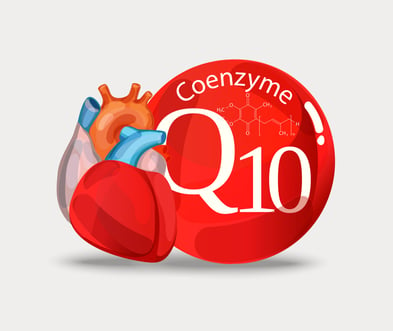 What if I told you that I had a drug that could help cure the majority of your ailments, make your workday and life more productive, and help you sleep better? How much would you pay for this drug? But wait, there’s more! This drug can also
What if I told you that I had a drug that could help cure the majority of your ailments, make your workday and life more productive, and help you sleep better? How much would you pay for this drug? But wait, there’s more! This drug can also
- Increase blood flow to the brain, creating new blood vessels.
- Help you withstand fatigue.
- Decrease depression.
- Improve memory.
- Quicken learning time.
- Increase bone density.
- Help wounds heal faster.
- Improve eye health.
- Produce weight loss and fat cell shrinkage.
- Slow the aging process.
- Extend your life span by as many as 5 years.
- Decrease the risk for heart disease, type-2 diabetes, COPD, CHF, and Alzheimer’s disease (that’s right, it’s currently the only known medicine to delay and even combat this disease).
- Elicit feelings of joy and victory.
If I told you I had a drug that could do all that and more, would you consider it a wonder drug? I know I would! How much would you pay for that drug? Also, the most serious side effects of this drug are an increase in appetite and some muscle soreness from time to time. Now how much would you pay? What if I told you most forms of this drug are FREE? That’s right, EXERCISE is the drug I am referring to, but you figured that out already, didn’t you?
You may also be saying to yourself, that’s easy for a fitness professional to proclaim all those benefits of exercise, but it’s science, not my personal feelings about exercise. And if only the medical community and our society would listen to the science, Americans might not spend $3.35 trillion this year in health care, an all-time high! The U.S. spends more on health care than all other high-income nations, yet we are still the most unhealthy and diseased country. I’m not a scientist, but something doesn’t seem right about that equation.
But back to this drug that can do all the above and won’t even come close to touching that $3 trillion mark—EXERCISE! Here’s a quick rundown of what we know about exercise and its disease prevention impact.
The Science
In a 2016 special edition of TIME magazine, you can read about the science of exercise. It also tackles the idea of exercise as medicine, looking at the notion from several angles and different vantage points. Here is just a little of the science surrounding exercise and how it truly is a super drug.
- In 2011 a team led by Mark Tarnopolsky studied genetically diseased mice that caused them to age prematurely. Half the mice were sedentary and the other half ran on a treadmill for 5 months. At the study’s end, the sedentary mice were barely hanging on, and the active mice were “nearly indistinguishable” from healthy mice, even though they were suffering from this genetic disease.
- According to a 2006 University of Georgia review of 70 studies, it was found that regular exercise increases energy and reduces fatigue in adults of all ages with various health conditions and healthy ones as well—even those who suffered from ailments that cause fatigue, such as fibromyalgia.
- Research shows that the less you move, the higher your risk for just about every health problem increases substantially.
- Data from the National Weight Control Registry, which is an ongoing decades-long study, shows that people who lose a considerable amount of weight maintain the loss in part by exercising most days of the week.
- A 1999 Duke University study found that adults suffering from depression who did 45 minutes of aerobic exercise three times per week improved their mood as much as individuals who took the antidepressant Zoloft instead of exercise.
- In a three-month study, Martin Gibala tested how effective a 10-minute workout could be compared to the standard 50-minute session. The shorter workouts resulted in identical improvements in heart function and blood-sugar control.
The Prescription
The current guidelines from the American College of Sports Medicine (ACSM) recommend getting 150 minutes per week of moderate-intensity aerobic exercise or 120 minutes a week of moderate–vigorous aerobic exercise, or a combination of both. The ACSM, myself included, also highly recommend strength and endurance training as a part of a balanced exercise program.
A lot of activities count as exercise that many don’t realize, and people feel that they have to have an extensive exercise program and fancy health club to exercise. But we really just need to move. Now don’t get me wrong, I strongly recommend seeking the counsel of a fitness professional to help get you on your way to a healthier lifestyle or to redefine your current fitness level and aspirations. But until then, the prescription to stay healthy is simply to increase your movement throughout the day.
If you are unable to dedicate 30 straight minutes a day, break it up into three 10-minute sessions. We should all be able to spare 10 minutes to be able throw away the bottle of pills. Don’t forget that lawn work constitutes exercise, and so does taking the stairs.
Here are a few more physical activities that can allow anyone to meet the standard recommendations for exercise and physical activity: Walking, household chores, dancing, golf, basketball, tennis, volleyball, hiking, jogging, running, shoveling snow, raking the lawn, carrying heavy loads, biking, cross-country skiing, swimming, soccer… the list goes on and on! There are so many options to get the recommended amount of exercise for health. Choose the one that you enjoy and go do it!
The Takeaways
Until recently, the healthcare system was inching toward a model of value-based care as opposed to volume-based care, and docs and hospitals were essentially going to be penalized for longer patient stays and reoccurring patient visits. On the surface, that makes a great deal of sense to me; if you are not helping a person get back to being healthy, you shouldn’t be rewarded for it. I’m also not naïve enough to think there are not a lot of “hands in the pot” when it comes to healthcare, and many have a say as to the logistics of the current health care system. But the ACSM, with the Exercise Is Medicine initiative, have their heels on the ground marching toward the value-based system that will hopefully create real change in the health of our nation. I’m sure you can agree that a change of this magnitude will take some time, but there are some things we can be doing in the meantime.
First and foremost, talk to your doctor about how exercise can help you with any current conditions or battle future ones. If your doctor is unable to give you the advice you need, remember, they are not fitness experts. Seek out the assistance of a fitness pro to help. More simply, get up and move, and take someone with you! We can all help create change.
Hippocrates wrote many years ago that “Eating alone will not keep a man well. He must also take exercise.” We knew then what we should be practicing now: exercise is the true medicine for the ailments that plague mankind these days. So instead of looking at the next prescription drug label, let’s take a walk and talk about how we can be truly healthy by using exercise as medicine.

This blog was written by Tony Maloney, ACSM Certified Exercise Physiologist. To find out more about the NIFS bloggers, click here.
 Coenzyme Q10, also known as ubiquinone, is a commonly used supplement by those with cardiovascular risks and disease, and especially those using statins. CoQ10 acts as a carrier in our cells to assist in oxygen utilization. It also assists enzymes in the mitochondria. This allows the production of energy in a cycle referred to as the Krebs Cycle, and hints at why the mitochondria are the “powerhouse of the cell.” Some believe that those with heart failure have a buildup of reactive oxygen species (ROS), which can lead to adverse effects. Furthermore, they suggest CoQ10 antioxidant properties can combat the buildup of ROS. Additionally, CoQ10 is thought to balance calcium-dependent ion channels within the heart, which is critical for heart function. As far as supplementation with statins goes, people are led to believe that supplementing CoQ10 is essential because statins block the pathway that leads to CoQ10 production.
Coenzyme Q10, also known as ubiquinone, is a commonly used supplement by those with cardiovascular risks and disease, and especially those using statins. CoQ10 acts as a carrier in our cells to assist in oxygen utilization. It also assists enzymes in the mitochondria. This allows the production of energy in a cycle referred to as the Krebs Cycle, and hints at why the mitochondria are the “powerhouse of the cell.” Some believe that those with heart failure have a buildup of reactive oxygen species (ROS), which can lead to adverse effects. Furthermore, they suggest CoQ10 antioxidant properties can combat the buildup of ROS. Additionally, CoQ10 is thought to balance calcium-dependent ion channels within the heart, which is critical for heart function. As far as supplementation with statins goes, people are led to believe that supplementing CoQ10 is essential because statins block the pathway that leads to CoQ10 production. 

 Dietary supplement usage is reaching an all-time high. The
Dietary supplement usage is reaching an all-time high. The  What if I told you that I had a drug that could help cure the majority of your ailments, make your workday and life more productive, and help you sleep better? How much would you pay for this drug? But wait, there’s more! This drug can also
What if I told you that I had a drug that could help cure the majority of your ailments, make your workday and life more productive, and help you sleep better? How much would you pay for this drug? But wait, there’s more! This drug can also